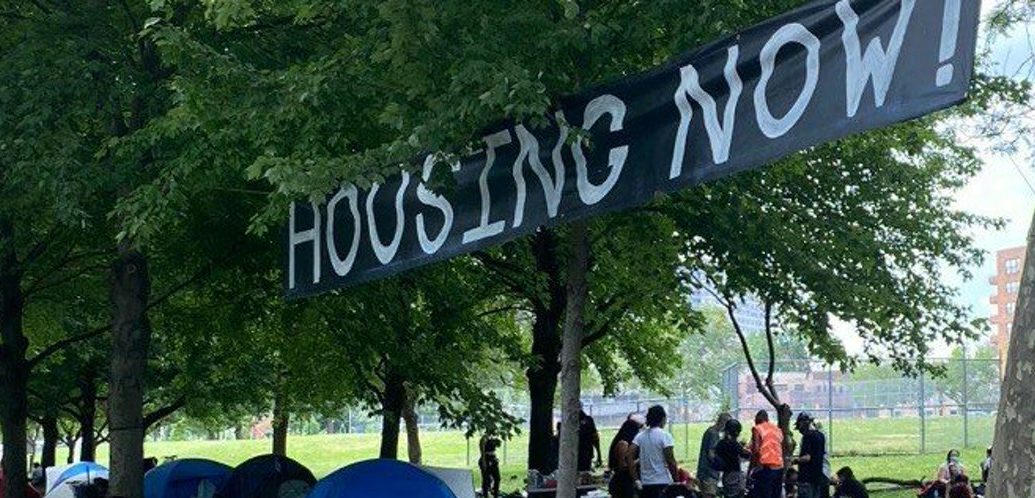On September 25, Philadelphia housing activists declared victory in their months-long campaign to achieve community control of city-owned vacant properties squandered by the public housing authority, in a city with more than 10,000 people accessing homelessness services.
The City of Philadelphia and the Philadelphia Housing Authority have agreed to transfer 50 vacant properties to a community land trust, soon to be established by Philadelphia Housing Action (PHA)—a coalition of activists with lived experience of being unhoused and/or institutionalized. The group has already organized two unsanctioned, protest housing encampments and housed 50 mothers and children in 15 occupied city-owned homes.
“It’s a good start but it’s also not enough,” said Sterling Johnson, a Black and Brown Workers Cooperative organizer, in a press release. “There was already a major housing crisis in Philadelphia and we anticipate a wave of mass evictions on top of that due to [COVID-19]. The scale of the housing crisis would require thousands of new units of low-income housing but we feel that with this agreement we can at least get started moving people off the street and into homes before winter. This is only the beginning.”
The city will now cease its eviction efforts against the residents of the two PHA-organized encampments: Camp James Talib Dean—named after a recently-deceased coalition organizer who cofounded a group advocating, among other things, decriminalizing all drugs—and Camp Teddy. Their residents will begin transitioning out of the spaces they’ve come to call home and into longer-term housing options.
Mayor Jim Kenney had ordered the eviction earlier in September. His office and the PHA had agreed to a number of deals, such as making vacant properties available to non-profit acquisition, but not specifically ensuring they’d go to the camp organizers.
“The City remains in negotiation with the representatives of the protest camps, but many details remain to be worked out,” the city said in a statement. “Any agreement will require a date certain by which the protest camps will be resolved.”
“This will be a landmark agreement,” said #OccupyPHA organizer Jennifer Bennetch. “Not only has a group of poor and homeless organizers managed through direct action to win an agreement that will set a precedent for the entire country, but we have also forced the city to exercise its power of the Philadelphia Housing Authority and finally get them to give up these vacant homes that have been blighting our communities for decades. We will continue to pressure the city to transfer more houses to be designated as permanent low-income housing, stabilize our communities and combat the displacement caused by market rate development and gentrification.”
On a single night in January 2019, there were more than 5,000 unhoused Philadelphians, with almost a thousand of them (973 people) sleeping outside, according to a data snapshot published by the city. That year saw a 9 percent increase in the number of people experiencing chronic homelessness—a preventable circumstance defined by the city as being without housing for at least the length of a year. Significant proportions of unhoused adults lived with mental illness (40 percent) and “chronic substance abuse” (37 percent).
Photograph of one of the Philadelphia Housing Action protest camps via Philadelphia Housing Action/Twitter





Show Comments